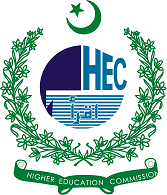Effect of Donald Trump’s Policies on Pakistan’s Economy
DOI:
https://doi.org/10.58932/MULA0035Keywords:
Pakistan, Policies, Economy, CPECAbstract
This paper examines the impact of Donald Trump’s policies on Pakistan’s economy during his tenure as the 45th President of the United States (2017–2021). Guided by an “America First” agenda, Trump’s administration redefined U.S. foreign relations and emphasized conditional aid, protectionist trade policies, and stricter immigration controls. These measures significantly affected Pakistan’s economy by reducing aid inflows, creating uncertainties in trade, limiting remittances, and reshaping geopolitical alignments. This study relies on secondary sources, policy documents, and scholarly articles to analyze the consequences of these policies. The findings reveal that Trump’s administration weakened Pakistan’s economic dependence on the United States, pushed it closer to China through initiatives like the China-Pakistan Economic Corridor (CPEC), and highlighted the challenges of over-reliance on foreign aid. The paper concludes with policy recommendations for Pakistan to pursue economic self-reliance, strengthen regional partnerships, and diversify its trade and investment strategies.
References
Ahmad, S., Qamar, A. J., Bhatti, M. A. A., & Bashir, U. (2023). Integrating Islamic Ethics with Modern Governance: A Comprehensive Framework for Accountability Across Religious, Social, and Economic Dimensions. Al-Irfan, 8(15), 51-79.
Aziz, S. (2018). Between dependency and autonomy: Pakistan’s external economic relations. Journal of Policy Studies, 9(4), 266-288.
Ahmad, S., Bhatti, M. A. A., & Imam, M. A. (2023). Balancing Control and Collaboration: Project Manager Accountability in Multi-Layered Governance Systems. Journal of Professional Research in Social Sciences, 10(2), 134-155.
Barfield, T. (2018). Afghanistan, Pakistan, and the U.S. in Trump’s strategy. Foreign Policy Analysis, 14(3), 207-224.
Basrur, R. (2019). Trump’s South Asia strategy: Implications for Pakistan. Asian Security Studies, 11(2), 89-110.
Cohen, S. P. (2019). The future of U.S.-Pakistan relations. Brookings Policy Paper.
Curtis, L. (2018). The Trump administration’s approach to South Asia. Heritage Foundation Policy Review.
Chughtai, M. A., Bhatti, M. B. A., & Naqvi, I. H. Ethics before Trust in Organization Public Relationships (OPRs): A Review of Real Estate Organizations.
Ahmad, S., Ahmad, A., Shair, W., & Bhatti, M. A. A. (2022). Unlocking Pakistan's Youth Potential: A Comprehensive Analysis of Youth Development Indices and Strategic Alignment with the UN Sustainable Development Goals. Journal of Professional Research in Social Sciences, 9(2), 80-95.
Anjum, G., & Bhatti, M. A. A. Discover the Impact of Internet Usage on the Academic Performance of Library and Information Science Students. Indonesian Journal of Multidiciplinary Research, 4(2), 377-388.
Fair, C. C. (2018). Pakistan’s political economy and U.S. relations. Brookings Institution Press.
Grare, F. (2018). Rethinking U.S. foreign aid in South Asia. Carnegie Endowment for International Peace.
Haqqani, H. (2018). U.S.-Pakistan relations: Convergence or divergence? Carnegie Endowment for International Peace.
Hussain, I. (2019). Pakistan’s economic challenges and U.S. relations. Pakistan Economic Forum, 12(1), 33-57.
Iqbal, Z. (2019). Remittances and immigration policy: The Trump effect on Pakistan. Journal of Migration Studies, 7(1), 72-94.
Imam, M. A., Ahmad, S., Bhatti, M. A. A., & Afzal, M. (2023). Contextualizing Research Approaches: The Role of Western and Islamic Philosophies in Shaping Methodology and Knowledge Creation. Al-Irfan, 8(16), 69-90.
Jalal, A. (2018). Pakistan’s foreign policy dilemmas in the Trump era. Journal of International Affairs, 16(2), 198-222.
Jawad, S., Naveed, H., & Akram, M. B. (2020). Academic Performance of Enrolled Students in the University of Lahore, Pakistan. Quest Journal of Management and Social Sciences, 2(2), 357-365.
Kugelman, M. (2019). Pakistan and the U.S.: A relationship under stress. Wilson Center Policy Brief.
Markey, D. S. (2020). The impact of U.S. foreign policy on Pakistan’s economy. Council on Foreign Relations Report.
Naseem, S. M. (2019). U.S. economic policy and developing economies: The case of Pakistan. Asian Development Policy Review, 8(1), 44-62.
Nasir, M., & Khalid, A. (2019). The role of U.S. aid in Pakistan’s economic stability. Economic Review Journal, 14(3), 215-232.
Rashid, A. (2020). Pakistan’s foreign policy challenges in the Trump era. Journal of South Asian Studies, 35(2), 145-162.
Siddiqa, A. (2018). The politics of aid: Pakistan’s dependency syndrome. South Asian Studies Review, 22(4), 311-329.
Small, A. (2020). The China-Pakistan Economic Corridor: Strategic and economic implications. Oxford University Press.
Tellis, A. J. (2020). U.S.-Pakistan relations and strategic realignments. Carnegie Endowment Report.
Weinbaum, M. G. (2017). The U.S. and Pakistan: A relationship in transition. Middle East Institute.




